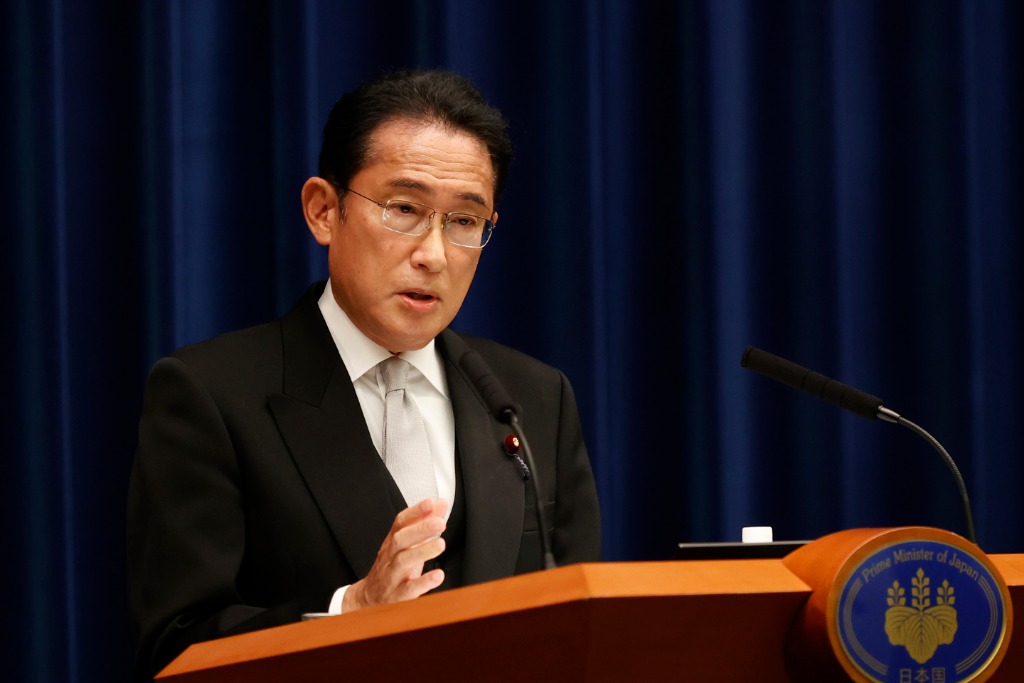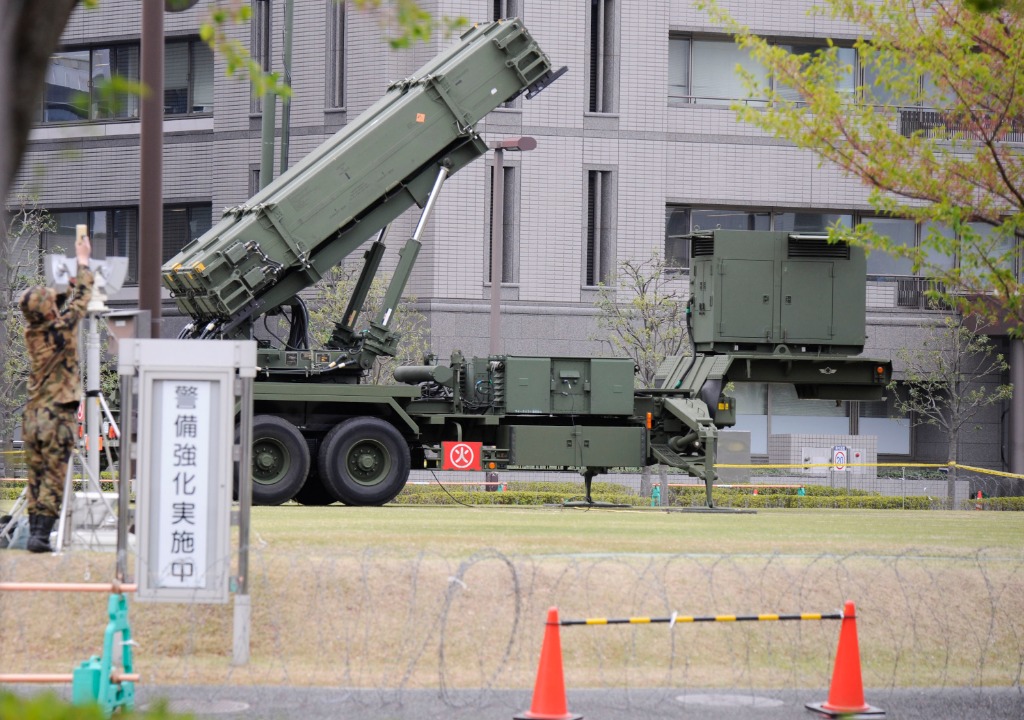Ministry of Civil Affairs Central Political and Legal Committee Central Network Office the Supreme People’s Court
The Supreme People’s Procuratorate National Development and Reform Commission Ministry of Education Ministry of Public Security
Ministry of Finance Ministry of Human Resources and Social Security Ministry of Housing and Urban-Rural Development
Ministry of Transport, National Health Commission, State Administration of Radio, Film and Television, National Bureau of Statistics
National Medical Insurance Bureau National Disease Control Bureau the State Council Women and Children Working Committee Office
The Communist Youth League Central Committee All-China Women’s Federation China Disabled Persons’ Federation on Printing and Distributing
Notice of the Action Plan for Strengthening the Care and Protection of Migrant Children
Minfa [2024] No.35??
Provinces, autonomous regions and municipalities directly under the central government, the Civil Affairs Department (bureau), the Political and Legal Committee of the Party Committee, the Internet Information Office, the Higher People’s Court, the People’s Procuratorate, the Development and Reform Commission, the Education Department (Education Commission), the Public Security Department (bureau), the Finance Department (bureau), the Human Resources and Social Security Department (bureau), the Housing and Urban-Rural Construction Department (bureau), the Transportation Department (bureau), the Health and Wellness Commission, the Radio and Television Bureau, and Civil Affairs Bureau of Xinjiang Production and Construction Corps, Political and Legal Committee of Party Committee, Internet Information Office, Production and Construction Corps Branch of Higher People’s Court of Xinjiang Uygur Autonomous Region, People’s Procuratorate of Xinjiang Production and Construction Corps, Development and Reform Commission, Education Bureau, Public Security Bureau, Finance Bureau, Human Resources and Social Security Bureau, Housing and Urban-Rural Development Bureau, Transportation Bureau, Health and Wellness Committee, Radio and Television Bureau, Statistics Bureau, Medical Insurance Bureau, Disease Control Bureau, Women and Children Working Committee Office, Youth League Committee, Women’s Federation, Disabled Persons’ Federation:
The Action Plan for Strengthening the Care and Protection of Migrant Children is hereby printed and distributed to you, please implement it carefully.
Central Committee of Political Science and Law, Ministry of Civil Affairs
Zhong yang Wang Xin ban highest people’s court
The Supreme People’s Procuratorate Guo Jia fa Zhan Gai ge Wei
Ministry of Education and Public Security
Ministry of Finance, Ministry of Human Resources and Social Security
Ministry of Housing and Urban-Rural Development Communications Transportation Department
National Health and Wellness Commission General Bureau of Radio, Film and Television
National Bureau of Statistics, National Bureau of Medical Insurance
Guo Jia Ji kong ju the State Council women and children workers’ committees office
Communist Youth League Central Committee All-China Women’s Federation
China Federation of Disabled Persons
August 16, 2024
Action plan to strengthen the care and protection of migrant children
In order to thoroughly study and implement the spirit of the 20th National Congress of the Communist Party of China and the Second and Third Plenary Sessions of the 20th Central Committee, implement the decision-making arrangements of the CPC Central Committee and the State Council on children’s work, conscientiously implement the requirements of the Seventh National Conference on Women and Children’s Work, strengthen the care and protection of migrant children, and promote the equal enjoyment of high-quality rights protection and care services for migrant children, this plan is formulated.
I. General requirements
(1) Guiding ideology.
Guided by Socialism with Chinese characteristics Thought of the Supreme Leader in the New Era, we should thoroughly study and implement the spirit of the important instructions of the General Secretary of the Supreme Leader on children’s work, take strengthening the care and protection of migrant children as the theme, and focus on promoting the equalization of basic public services, carry out thorough investigation, improve safeguard measures, and strengthen care and service, so as to create a good environment for the healthy growth and all-round development of migrant children.
(2) Basic principles.
Adhere to children first. Give full consideration to the special interests of children in all work, regard children as the object of priority protection and service, adhere to the priority planning of public utilities, the priority benefit of public services, and the priority protection of public resources, and regard migrant children as the service focus, so as to promote the all-round development of migrant children and make their rights and interests more secure, their lives more brilliant and happier.
Adhere to overall planning. Give full play to the role of the government, schools, families, communities and society, establish and improve the coordination mechanism of multi-sectoral work, make overall use of all kinds of resources to promote the implementation of the work, persist in making a thorough investigation, establish a ledger, practice and explore, sum up experience, and continuously improve the quality of care and protection.
Adhere to fairness and accessibility. Improve the protection measures for migrant children, strengthen care services, continuously narrow the gap between migrant children and registered children in the supply of public services, and promote migrant children to enjoy fairer, more convenient and better services in their places of residence.
Adhere to the long-term perspective. On the basis of effectively solving the key and difficult problems of care and protection for migrant children, we will continue to improve laws, regulations and policy documents, continue to promote the policy of equal access to public services for migrant children, and continuously promote the high-quality development of care and protection for migrant children.
(3) Work objectives.
By 2026, the relevant policies and systems for migrant children will be more optimized and improved, the care service will be more accurate and effective, the measures to benefit the people in key areas will be more equal and balanced, the children’s information account will be more accurate, the grassroots foundation will be more solid, and the overall level of care and protection for migrant children will be significantly improved. By 2035, the care and protection of migrant children has achieved remarkable results, the care and protection system is comprehensive and sound, the supply of basic public services is more equal and high-quality, and the rights and interests of migrant children’s physical and mental health development are fully guaranteed.
Second, carry out monitoring and arranging, and establish information ledger
(4) Accurate monitoring of mopping.All localities should conscientiously organize and carry out the monitoring and mopping-up of migrant children, and include minors who leave their domicile with their parents or other guardians, live or live in different places across counties for more than 6 months and under the age of 16 in the monitoring and mopping-up of migrant children (except for those living or living in different places between municipal districts in the central city). Monitoring mopping work takes counties (cities, districts and banners) as the basic units, with the civil affairs departments taking the lead, education, public security, health, medical insurance, disease control, disabled persons’ federations and other relevant departments and units participating together. Where conditions permit, professional social work service agencies can be entrusted to undertake specific mopping work. The civil affairs department shall, jointly with relevant departments, establish a working mechanism for regular monitoring of migrant children, and update the information of migrant children at least once every six months. Before the end of September 2024, local civil affairs departments should complete data collection and enter it into the national child welfare information system within the prescribed time limit.(The Ministry of Civil Affairs, the Ministry of Education, the Ministry of Public Security, the National Health and Wellness Commission, the National Medical Insurance Bureau, the National Disease Control Bureau, and the China Disabled Persons’ Federation are responsible for the division of responsibilities)
(5) establish a work ledger.For migrant children who are found to have difficulties in family life, self-disability, lack of guardianship, vagrancy and abnormal psychology and behavior, as well as migrant children across towns (streets) who actively ask for assistance, it is necessary to establish an information account of key care clients, visit regularly, strengthen care and protection, and protect children’s legitimate rights and interests. Where conditions permit, files of key care clients can be established, file management can be strengthened, and information security can be ensured. Select the demonstration counties (districts) and national child-friendly pilot cities to carry out dynamic monitoring of the care and protection of migrant children.(The Central Political and Legal Committee, the Ministry of Civil Affairs, the Ministry of Education, the Ministry of Public Security, the National Medical Insurance Bureau, and the the State Council Women and Children Working Committee Office are responsible for the division of responsibilities)
(6) Building a big data platform.The civil affairs department and relevant departments will strengthen data comparison and sharing, promote the realization of data analysis and application functions of migrant children and left-behind children, gradually realize dynamic monitoring of data such as migrant children, timely grasp the situation of migrant children, and follow up and provide services in a timely manner. Where conditions permit, we should use the big data function to realize the functions of information push and comparative analysis of migrant children’s data between the place of residence and the place of household registration, explore the establishment of a comprehensive service platform for migrant children, and improve the digital and intelligent level of care and protection for migrant children.(The Ministry of Civil Affairs, the Ministry of Education, the Ministry of Public Security, the National Bureau of Statistics and the National Medical Insurance Bureau are responsible for the division of responsibilities)
Third, improve the system and measures to improve the level of protection
(7) Optimize the implementation of the education security policy.Local education departments promote the establishment of a basic public education service supply mechanism that is coordinated with the change of permanent population, and allocate educational resources according to the actual service population. Optimize the supply of inclusive preschool education resources, implement the standard of public funds per student in public parks and the subsidy standard of inclusive private parks, and promote migrant children to enter the kindergarten nearby. We will further implement the schooling policy of "taking residence permit as the main basis" in the compulsory education stage, and give full consideration to the special difficulties of migrant children in optimizing the distribution of compulsory education resources, promoting the balanced development of compulsory education and subsidizing students with financial difficulties. Increase the supply of degrees in public schools, steadily increase the proportion of migrant children attending public schools or enjoying the degree (service) purchased by the government, and guarantee their equal right to receive compulsory education. Further improve the policy of migrant children of migrant workers participating in the college entrance examination in the local area.(Ministry of Education is responsible)
(eight) to promote the improvement of health care security measures.Local health departments should fully consider the actual needs of migrant children when formulating and organizing the implementation of policies and measures to promote the equalization, generalization and convenience of basic public health services and the extension of public health resources to the grassroots, and cooperate with local disease control departments to continue to do a good job in the vaccination service of national immunization programs for school-age children; Combined with health emergency into the community, into the enterprise, into the school, into the countryside, into the family work, help migrant children and their families to master basic health knowledge and skills such as first aid, improve health emergency awareness and self-help and mutual rescue ability; Promote the development of inclusive child care service system, and promote migrant children to get inclusive child care services nearby. Local medical insurance departments should continue to promote migrant children to participate in residents’ medical insurance work with residence permits, implement medical settlement in different places, and ensure the medical security rights of insured children. Disabled persons’ federations around the country should ensure that migrant children with disabilities apply for and enjoy rehabilitation assistance at their place of residence.(The National Health and Wellness Commission, the National Medical Insurance Bureau, the National Disease Control Bureau and the China Disabled Persons’ Federation are responsible for the division of responsibilities)
(9) Weave the basic living security net tightly.The civil affairs departments of children’s places of residence should classify and strengthen the living security of migrant children. For those who meet the conditions of orphans and children who are actually left unattended, coordinate the civil affairs departments of household registration places to identify their qualifications in accordance with relevant policies, incorporate them into the security in time, establish and improve the dynamic adjustment mechanism of basic living security standards, and vigorously promote "inter-provincial communication" to provide convenient services; Providing temporary guardianship and long-term guardianship for eligible floating children by relying on minor rescue and protection institutions and child welfare institutions; To provide temporary assistance to eligible floating children in emergency places; Coordinate the civil affairs department of the domicile to handle two subsidies for disabled children who meet the requirements in a timely manner. Local housing and urban-rural construction departments protect the housing rights and interests of migrant children’s families by renting public rental housing in kind or granting rental subsidies. Local transportation departments should provide convenience for migrant children in terms of bus line layout and student bus card handling. Encourage and support natural persons, legal persons and other organizations to donate property, set up projects, provide services, etc., and voluntarily carry out charitable assistance for migrant children, focusing on helping migrant children who have difficulties in family life.(The Ministry of Civil Affairs, the Ministry of Housing and Urban-Rural Development, the Ministry of Transport and the China Disabled Persons’ Federation are responsible for the division of responsibilities)
Fourth, strengthen caring services to promote healthy growth
(ten) to improve the level of family education guidance.Local women’s federations, education departments and units should actively carry out family education guidance for parents or other guardians of migrant children, and urge and guide parents or other guardians of migrant children to implement the main responsibility of family education. If the village (neighborhood) committee finds that the parents or other guardians of floating children fail to perform their guardianship duties according to law or infringe on the legitimate rights and interests of children, it shall advise and stop them, and if the circumstances are serious, it shall report to the public security organ in time. If the public security organ receives a report or the public security organ, the people’s procuratorate or the people’s court finds that the parents or other guardians of migrant children have the above situation in the process of handling the case, they shall be admonished and may be ordered to receive family education guidance.(the Supreme People’s Court, the Supreme People’s Procuratorate, the Ministry of Education, the Ministry of Public Security and the All-China Women’s Federation are responsible for the division of responsibilities)
(eleven) to provide mental health care services.All localities should give full play to the roles of school teachers, doctors, children’s supervisors, children’s directors, grid workers, social workers, psychological counselors, volunteers, etc., provide psychological counseling, emotional counseling, psychological comfort and other services for migrant children in need, effectively prevent minors from committing crimes, and actively cooperate with their parents or other guardians to take intervention measures when they find migrant children with abnormal psychology and behavior at work. Those who meet the conditions should be included in the scope of community rehabilitation services for mental disorders. Local education, civil affairs, health, youth league committees and other departments and units should strengthen cooperation, and smooth the channels for preventing referral and intervention between families, schools, communities, 12355 youth service desks, social psychological service institutions and medical and health institutions.(The Central Political and Legal Committee, the Ministry of Education, the Ministry of Civil Affairs, the National Health and Wellness Commission and the Central Committee of the Communist Youth League are responsible for the division of responsibilities)
(twelve) to strengthen the service of spiritual and cultural life.Local network information departments should continue to purify children’s cyberspace, enrich children’s digital life experience and provide children with a healthy and safe network environment. Local education departments should guide schools and kindergartens to provide campus cultural activities beneficial to the development of migrant children, and pay attention to guiding migrant children to participate in community activities, interest groups and extracurricular practical activities. Local civil affairs departments should organize and mobilize social organizations, etc., and provide reading guidance, letter companionship, recreational activities and other services for migrant children in a targeted manner. Local radio and television departments should organize the creation and dissemination of radio, television and online audio-visual programs that are conducive to the growth of migrant children and enrich their spiritual and cultural life. Around the Communist Youth League, women’s federations should rely on "childlike innocence harbor", children’s activity center, Children’s Home, etc., and organize various forms of inclusive and public interest training courses and cultural service activities for migrant children.(The Central Network Information Office, the Ministry of Education, the Ministry of Civil Affairs, the State Administration of Radio, Film and Television, the Central Committee of the Communist Youth League and the All-China Women’s Federation are responsible for the division of responsibilities)
(thirteen) to carry out urban integration services.All localities should mobilize enterprises, professional social organizations, social workers, volunteers, etc. to promote the integration of migrant children into urban life through activities such as introducing urban culture and familiarizing themselves with the community environment. Local development and reform, women’s and children’s work committees and other departments take the urban integration of migrant children as an important content in the construction of child-friendly cities, and promote migrant children to share safe, convenient and comfortable space, facilities, environment and services. Communist Youth League committees and women’s federations around the country help migrant children get familiar with the community environment by carrying out community practice activities involving migrant children and other children. Local human resources and social security departments should constantly optimize policies and measures to stabilize employment, and provide policy advice, job introduction, vocational training, entrepreneurship guidance and other services for parents of migrant children.(The National Development and Reform Commission, the Ministry of Civil Affairs, the Ministry of Human Resources and Social Security, the the State Council Women and Children Working Committee Office, the Central Committee of the Communist Youth League and the All-China Women’s Federation are responsible for the division of responsibilities)
V. Job Requirements
(14) Strengthen organizational leadership.All localities should profoundly understand the significance of doing a good job in the care and protection of migrant children, strengthen overall planning, compact territorial responsibilities, and incorporate this work into local economic and social development plans, annual economic and social development assessment indicators, and key deployment of livelihood projects. Local civil affairs departments should work with relevant departments to formulate specific implementation plans and report them to the Ministry of Civil Affairs by province before the end of October 2024. All relevant departments should put the care and protection of migrant children on the important agenda and the key tasks of their own departments, strengthen the guidance and supervision of this system, coordinate and solve key and difficult problems, and promote the implementation of the plan. Political and Legal Committee of Party committees at all levels, development and reform, the Communist Youth League Committee, women’s federations and other departments and units should incorporate the care and protection of migrant children into the construction of safe China, the construction of child-friendly cities, and the creation of posts to safeguard the rights and interests of young people.
(15) Establish a service list.Provincial civil affairs departments shall, jointly with relevant departments, study and analyze the basic service needs of migrant children in the region, formulate and publish a list of caring services for migrant children in the region according to the Basic List of Caring Services for Migrant Children in their Place of Residence (see Annex), and clarify the specific service objects, projects, contents, etc. The coverage and realization degree shall not be lower than the requirements of the Basic List of Caring Services for Migrant Children in Their Place of Residence, and make dynamic adjustments according to local economic and social development level, financial situation and other factors, and timely revise and publish it. All localities should take various forms to strengthen the publicity and interpretation of the list of care services for migrant children in their own areas, so that migrant children’s families can fully understand the specific content and better enjoy the policy dividend.
(sixteen) to lay a solid foundation.Local civil affairs departments should establish a grass-roots work network for the care and protection of migrant children, which is based on city and county minor rescue and protection institutions and township (street) minor protection workstations, and strive to promote the substantive operation of minor rescue and protection institutions; Select and strengthen children supervisors and children directors to achieve full coverage of professional training. Local development and reform, civil affairs, women and children’s work committees, youth league committees, women’s federations and other departments and units should strengthen the planning and layout of children’s public service facilities and increase children’s service places and spaces in the community. Local people’s procuratorates and civil affairs departments should give full play to their respective functional advantages and strengthen the in-depth cooperation of grassroots work forces. Local financial departments should co-ordinate the use of central and local financial funds, according to the number and security needs of migrant children in the region, and do a good job in ensuring the funds related to the work of migrant children through existing funding channels. Where conditions permit, subsidies for children’s directors may be appropriately increased. All localities have increased support for social organizations to provide care and purchase services for migrant children, and strengthened support and guidance for relevant social organizations to provide care and protection for migrant children.
(seventeen) to strengthen the implementation.The Ministry of Civil Affairs, together with relevant departments, will timely schedule the progress of care and protection for migrant children, and take the lead in holding a promotion meeting every year from 2024 to promote the implementation of the work. People’s courts and people’s procuratorates at all levels shall promptly issue judicial or procuratorial suggestions if they find that the relevant units have management loopholes or fail to perform their duties. All localities should clarify the division of tasks, refine the work measures, compact the responsibility, and incorporate this work into the relevant supervision and inspection, comprehensive evaluation and administrative assessment. For those who have achieved remarkable results, they should be commended and rewarded in accordance with relevant regulations to ensure that all policies are implemented and truly benefit the majority of migrant children.
Attachment: Basic list of care services for migrant children in their place of residence (omitted, please visit the website of the Ministry of Civil Affairs for details).




























